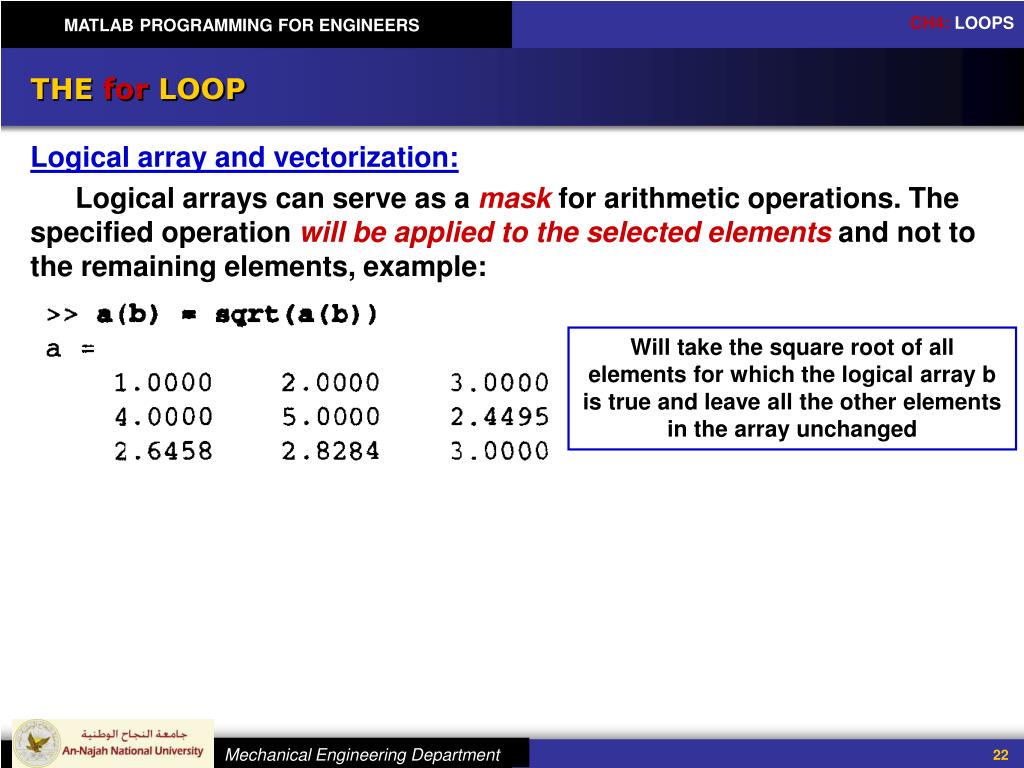

# the above won't work on Windows, but this will: Results = mclapply(inputs, processInput, mc.cores = numCores) Since 2.14, R has included the Parallel library, which makes this sort of task very easy. Results = Parallel(n_jobs=num_cores)(delayed(processInput)(i) for i in inputs # what are your inputs, and what operation do you want to Python has a great package, that makes parallelism incredibly easy. You would use your specific data and logic, of course. To make our examples below concrete, we use a list of numbers, and a function that squares the numbers.
FOR LOOP IN MATLAB HOW TO
Instead of processing your items in a normal a loop, we'll show you how to process all your items in parallel, spreading the work across multiple cores.

Normally you would loop over your items, processing each one: for i in inputs (After this step, you can then combine your results however you want, e.g., aggregating them, saving them to a file - it doesn't matter for our purposes.)

You can structure your code such that you have a function which takes one such thing and returns a result you care about.Your analysis processes a list of things, e.g., products, stores, files, people, species.Perf stats from some parallelized Python code running on a single, 32-core machine Is my Code Parallelizable?įor the purpose of this post, we assume a common analysis scenario: you need to perform some calculation on many items, and the calculation for one item does not depend on any other.


 0 kommentar(er)
0 kommentar(er)
